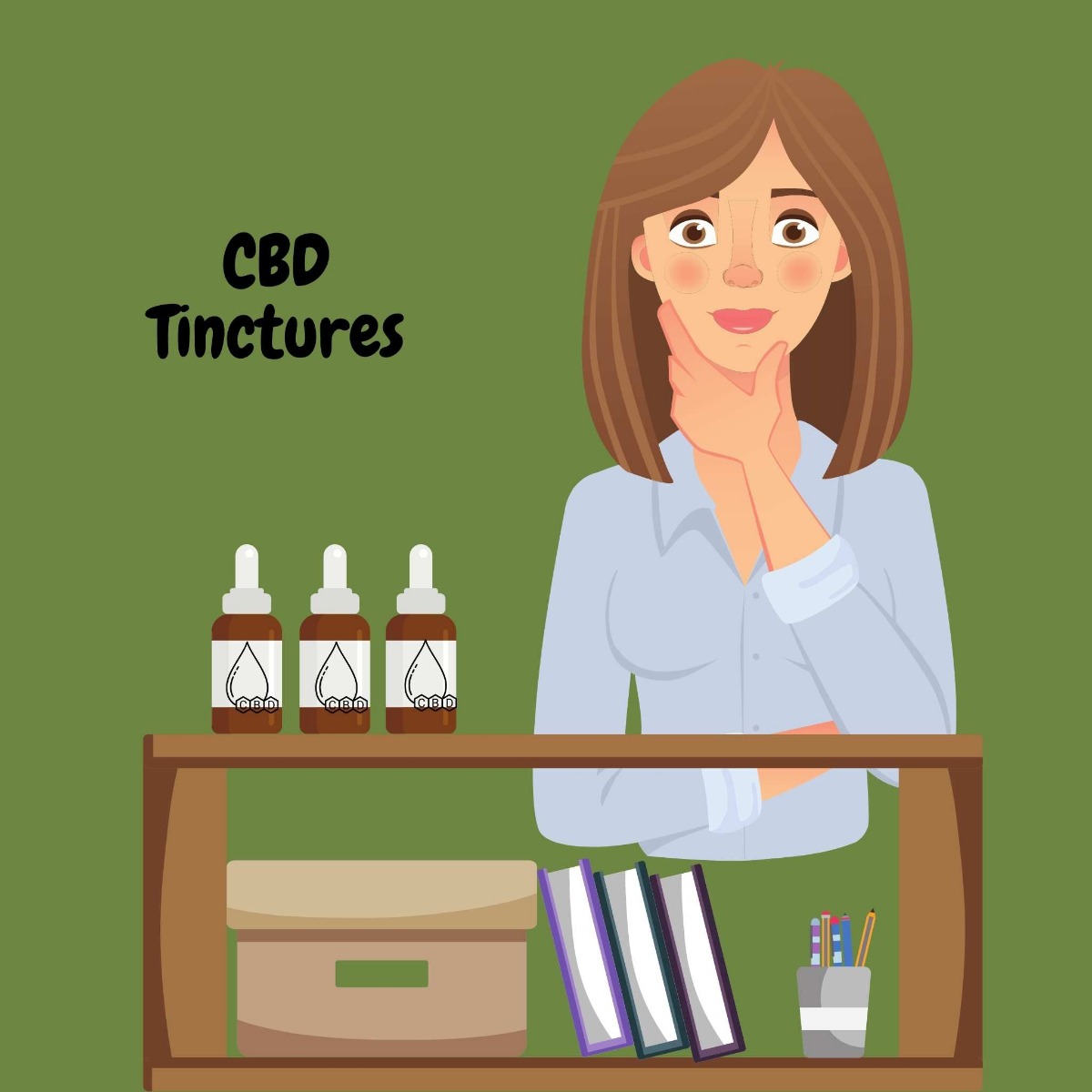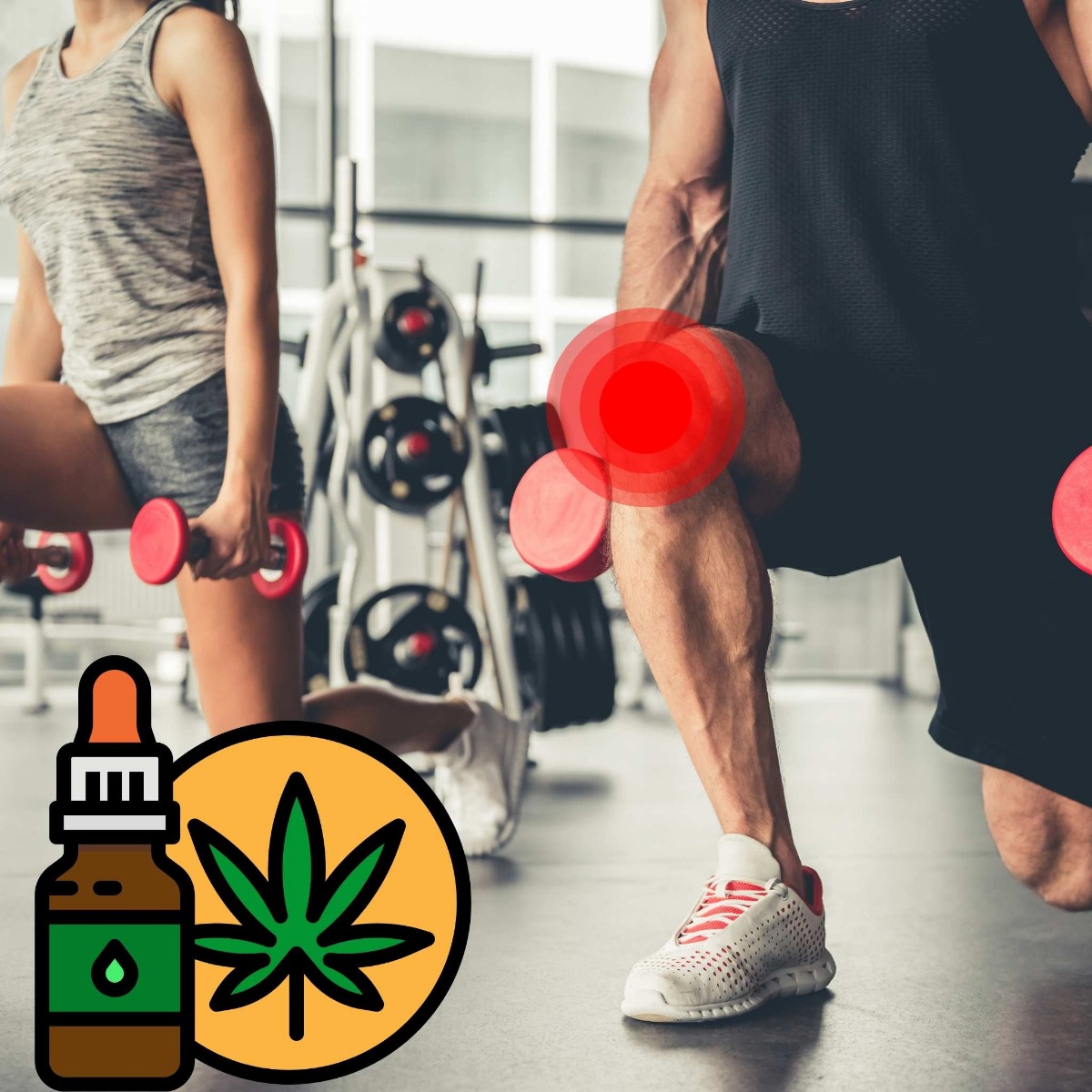Do CBD Tinctures Help Manage Pain at all?
CBD tinctures are being marketed as a potential medicine to treat a wide range of symptoms. It can almost seem like CBD is a magic cure-all. But what can it really do to help treat chronic pain? And will it help work to relieve the kind of pain you might be experiencing?
There are many potential benefits of taking CBD regularly, however, they are mainly based on anecdotal evidence at this time. Scientists are beginning to conduct further research into the magic of CBD and are nailing down the ways that this natural plant compound interacts with the endocannabinoid system in the human body. Based on CBD user’s experience though, there is overwhelming evidence that CBD can help manage the symptoms of pain. CBD tinctures in particular are becoming the go-to alternative product for people living with chronic pain in the United States. Read on the learn more about why CBD tinctures are so popular and what they can do to help manage any pain you are experiencing.

What Is A CBD Tincture?
In order to understand if a CBD tincture will help manage the kind of pain you are experiencing, you must first understand what a CBD tincture is. Thankfully, that is fairly straightforward. CBD tinctures are made with a base of either oil, such as coconut oil, or alcohol. All that is added to this base is hemp plant matter, which contains high percentages of CBD. CBD, or cannabidiol, is a naturally occurring compound found in hemp plants that can be extracted with certain processes. Depending on the method used, a resulting CBD tincture can either contain full-spectrum or broad-spectrum hemp plant extract, or isolated CBD.
While it might sound more beneficial to take the purest form of CBD, there is research that is beginning to show that whole-plant medicine can provide more beneficial effects. This is due to the incorporation of other healing plant compounds such as terpenes. For example, the terpene Myrcene has been shown to provide sedating effects and is the reason CBD tinctures are also often used to help manage insomnia. CBD tinctures can also contain additional ingredients, such as peppermint oil, that can help alleviate some symptoms you are experiencing as well.
Why Do People Take CBD Tinctures?
There are many reasons why you might take a CBD tincture, however, they are becoming increasingly popular for helping to manage chronic pain. This is mainly because CBD is a compound that can provide relief without being intoxicating. While CBD can have beneficial effects on the psyche as well, it has more of an effect on receptors in the endocannabinoid system. This system helps regulate and balance a number of different processes within the human body, including immune response and communication between cells. When you take a tincture sublingually, the CBD enters your bloodstream quickly and has effects onset initially when you take the tincture as well as about an hour after when the CBD hits your digestive system. CBD tinctures are popular because they provide a consistent and simple dosing method with the dropper bottle. Tinctures also can contain higher percentages of CBD than other products like edibles or vaporized dry herb, without all the additives.

Will CBD Help Relieve Pain?
Before answering our main question, it is important to note that the FDA, or the U.S. Food and Drug Administration, does not approve CBD tinctures for pain management. And as mentioned before, a lot of what we are sharing is based on anecdotal experiences that people within the CBD community have shared. But we’re not your doctor and you should definitely talk to them first before adding CBD to your health routine. CBD is known to interact with common pharmaceutical medications that you may already be taking, and you should look carefully into what potentially unwanted side effects could result from combining CBD and medication.
While CBD will appear to help relieve your pain, what it is actually doing is working to reduce inflammation in your body. Inflammation can cause pain in your body and treating the source of the pain will therefore treat the resulting symptom. So CBD tinctures work in a different way to treat pain than common prescription painkillers. But, there is lacking data to show how effective CBD is at treating pain in comparison to pharmaceutical drugs, but there is a clear list of fewer side effects. There is also plenty of user testimonies that say they feel CBD tinctures are safer to use because they are not associated with physical dependence that could lead to potential long-term abuse.

How Much CBD Tincture Should You Take?
It can be difficult to find the right dose of CBD to counteract the inflammation you are experiencing though. It can become even more difficult to tell when CBD tinctures come with a varying range of CBD potencies. There are a few industry standards emerging though, with 100, 300, and 600 milligrams of CBD included in a standard tincture bottle. It’s always best to start low and build your dosage slowly though. If you start with the entire bottle of tincture then you won’t know how much is really needed to have the affects you are seeking. It can also help to track your dosing at first and then share it with your medical professional to see what suggestions they have for finding the right dose for you. You can also reach out to the manufacturer of the CBD tincture you’ve chosen and see what they suggest as a starting dose.
There is mounting evidence that CBD can help alleviate various kinds of pain. But there is already evidence that shows that CBD is a non-intoxicating compound, which puts it ahead of a lot of prescription painkillers for patients who need daily pain relief. If you are looking to take CBD on a regular basis though, be sure to talk to your doctor first and stay up to date on the latest studies on all CBD has to offer.
Related Blog Posts
CBD Oil and Children Information For Parents
Blog Categories
- Home
- Industry News
- Vaporizer Reviews
- Dry Herb Vape Tutorials & FAQ
- Wax Pen Vape Tutorials & FAQ
- Oil Vape Pen Tutorials & FAQ
- Vaping Guides & Information
- Dabbing FAQ & Guides
- Smoking Pipe Tutorials
- NY Vape Shop Listicles
- Vape Pen Comparisons
- Vape Shop How To Articles
- Vape Shop Buyers Guide
- Vape Pen Basics
- Herb Grinder Reviews
- Dry Herb Vaporizer Reviews
- Oil Vape Pen Reviews
- Wax Pen Reviews
- Box Mod Vape Reviews